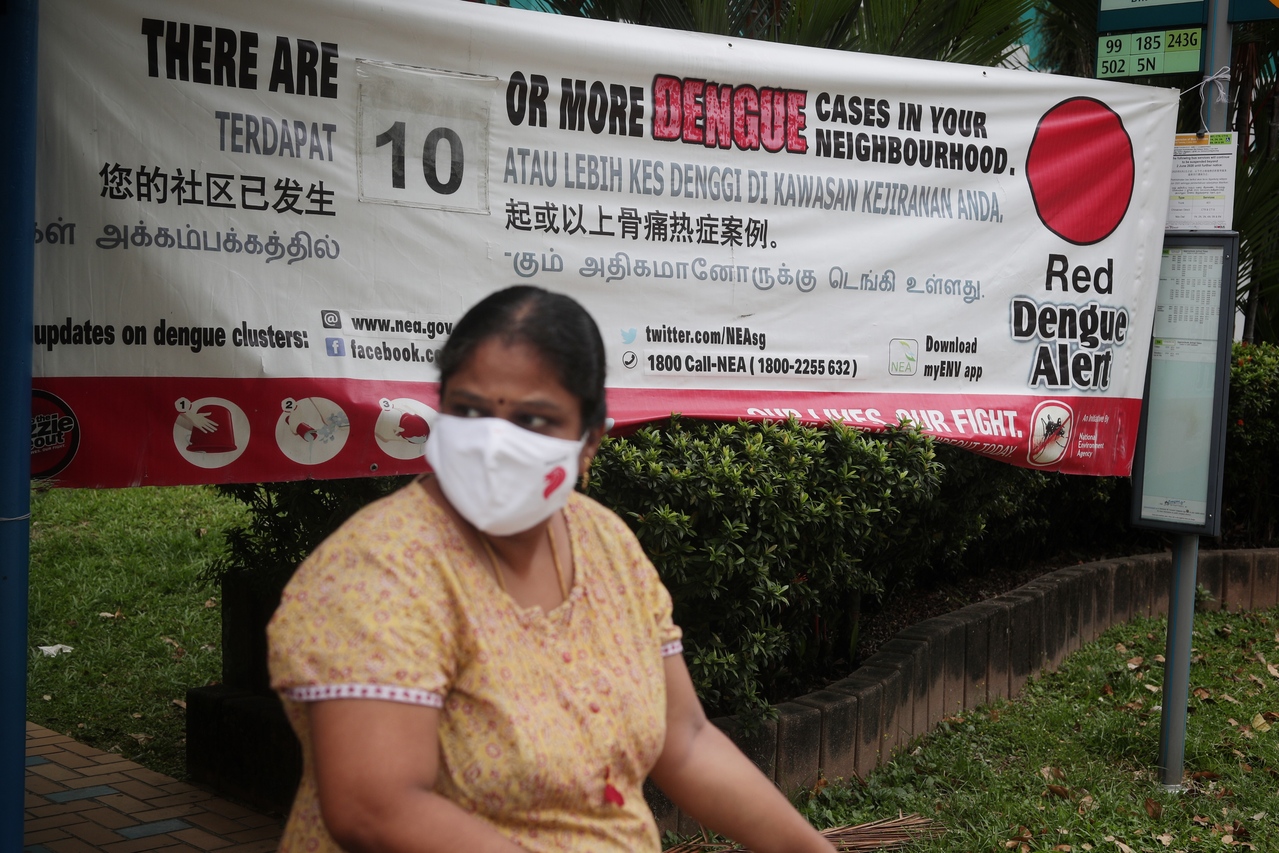Number of weekly dengue cases remains high as Aedes mosquito population grows
Sign up now: Get ST's newsletters delivered to your inbox

NEA warned that Singapore could face the threat of another surge in dengue cases in the coming months.
ST PHOTO: JASON QUAH
SINGAPORE - Dengue continues to be a threat as the number of weekly cases reported remains high amid an increase in the Aedes aegypti mosquito population, said the National Environment Agency (NEA) on Friday (Oct 30).
It has been hovering around 500 to 600 cases per week for the past five weeks.
Coupled with the swell in the Aedes aegypti population, Singapore could face the threat of another surge in dengue cases in the coming months, the NEA added.
It noted that since the start of September, the population of these dengue-causing insects has risen by 26 per cent over seven consecutive weeks.
Latest figures show a slide in the number of weekly cases.
But the decrease of about 5 per cent in the past week reflects a slower rate of decline, the NEA said.
In all, Singapore has 32,806 reported dengue cases as of Thursday (Oct 29), with 565 cases reported last week.
NEA also noted that dengue cases and mosquito breeding are more likely in homes in landed residential estates.
The dengue incidence rate is three to six times higher for residents living in landed homes than for those living in high-rise residences.
Between January and September, the number of dengue cases in landed properties made up about 25 per cent of the total number of dengue cases in Singapore.
Residents living in landed properties are urged by NEA to take measures to prevent mosquito breeding, such as covering any water storage containers and clearing roof gutters.
The number of dengue clusters has fallen by 15 clusters from the previous week, as of Thursday, to 162 clusters .
Four dengue clusters were also closed last week after no cases were detected for 14 days from the last case's onset of symptoms. They were in Changi Road, Bishan Street 11, Carpmael Road near Joo Chiat and May Road near Whampoa.
Overall, 94 per cent of dengue clusters reported since the beginning of the year has closed, said NEA.
Still, the total number of dengue clusters remains high, with control operations ongoing at five clusters, it added.


